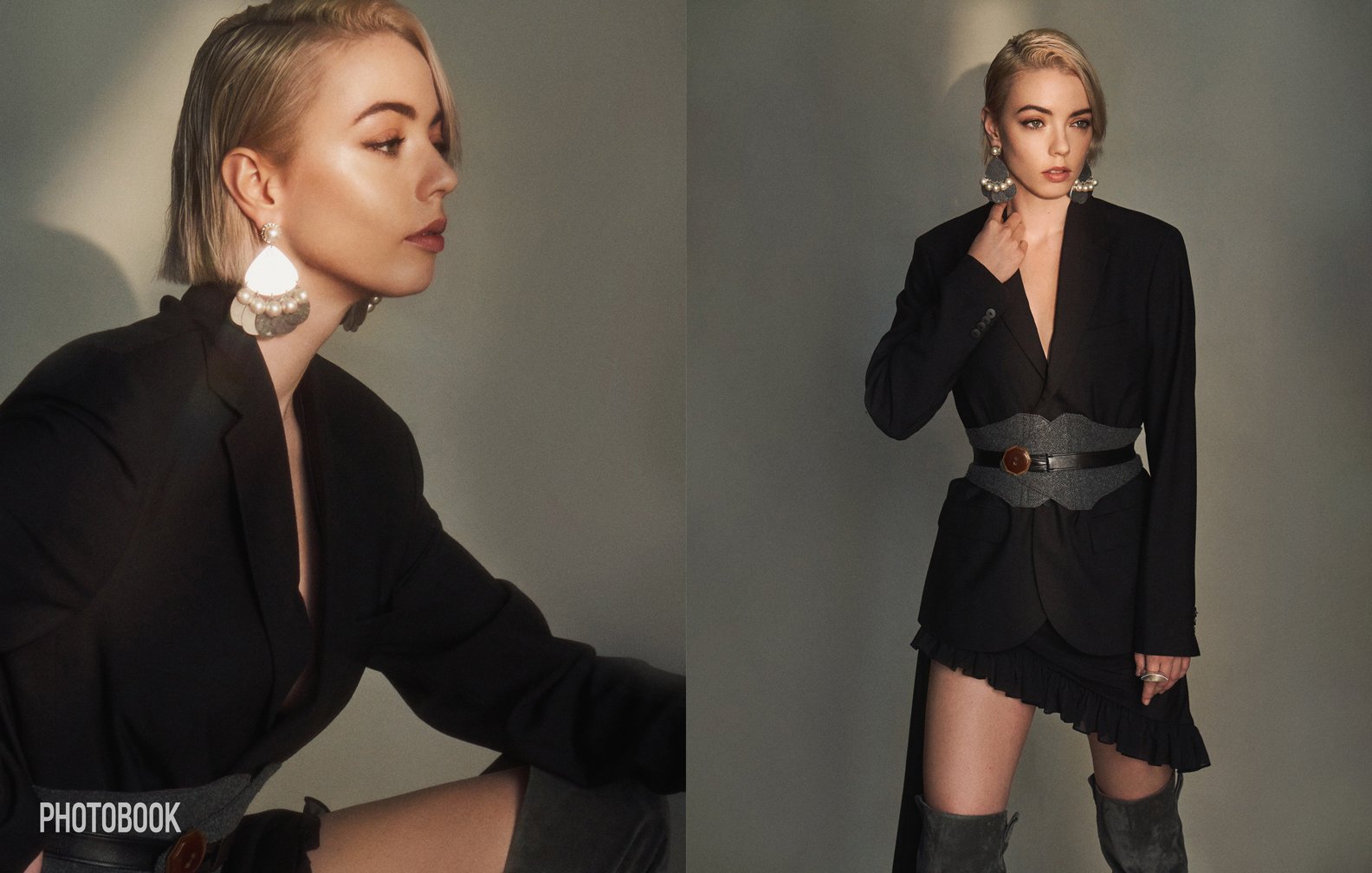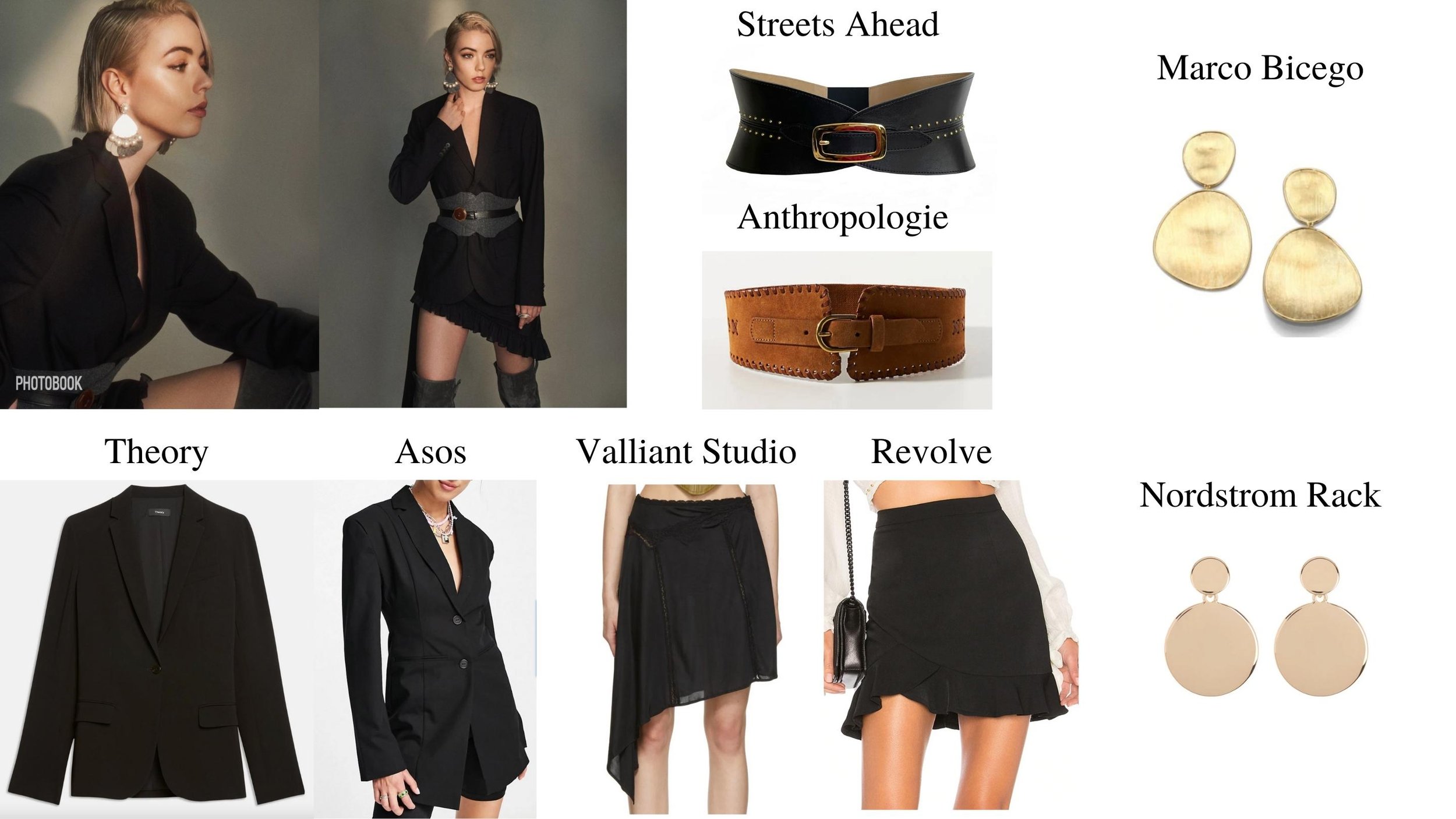Briauna Mariah, Founder of We Speak Model Management
We Speak Model Management was founded by Briauna Mariah in 2013 in order to create a space that addressed all the problems she faced as a model in New York. She searched and signed models with unique looks, ones who may have been rejected by the typical modeling agency. It wasn’t an easy journey but she had so much enthusiasm and support from the models that she never gave up. As the industry becomes more inclusive, We Speak will continue to thrive, making strides with models with disabilities, plus-size, gender fluid, and transgender models.
Earrings by Ben Amun
Jacket by LOL
Ring by Maiko Suzuki Jewelry at The Confessional Showroom
What was your experience like as a model in New York? How did that translate into starting your own agency?
When I moved to New York, I lost 2 inches around my waist in two weeks. I was told to walk for workouts instead of run, in order to keep my hip measurement down, I went unpaid for 6 months, and, at my thinnest I had ever been, my thighs were called "too doughy." I kept seeing the same perpetual problems for models from all the modeling agencies and I wanted to change the way things were being done. I wanted models to be protected. To have a space where they didn't feel bullied and scrutinized. Where they would be paid on time. Taken care of. And celebrated for who they are. So, bit by bit, I built We Speak.
What are some of the challenges you faced in the beginning?
My biggest barrier was not having connections in the industry. Aside from that, I remember a specific moment I was told my board was "too all over the place." Or that "curve" modeling was already a thing. But We Speak was never just a "curve" modeling agency. We represent everyone, of all backgrounds, regardless of specific measurements. For years, many industry professionals did not take We Speak seriously. This has been less of a problem these last couple of years, but it still comes up once in a while.
I read that you had issues with payment when you started out as a model. How does We Speak address that common problem for models?
We are working on ways to receive faster payments from the brands we work with. Some, on the more corporate level, just will not even consider changing their payment terms from a net 45 or net 30 to anything quicker. Net 30 is all right, but by the time we actually have the funds deposited and have time to send the model their payment, several more days or one-two weeks have passed. As it stands, we pay our models as quickly as possible, even if we have yet to receive funds from the brand that booked them. Bottom line, if the model needs to get paid, we pay them.
Blazer by Agnes B
Skirt by Videmus Omnia
Earrings by Erickson Beamon
Boots by AGL
Ring by Maiko Suzuki Jewelry at The Confessional Showroom
Corset by Paloma Soledad
What is anti-tokenism and how do you implement it?
I recently had a conversation with We Speak model, Kiara Marshall, and she described tokenism perfectly: "Tokenism is what happens when a small number of people from a marginalized/underrepresented group are only hired/put on display so that the organization at large looks to be diverse and to avoid criticism. People who are tokenized aren’t valued for what they bring to the table."
To me, authentic representation is the opposite of tokenism. And authentic representation is all about who is telling the story, who is making the decisions. Do the marginalized groups being represented by brands and companies have any autonomy over the story being told in campaigns?
For We Speak, everybody I hire within the internal structure of my company should be a mirror image of the models we represent. The more diverse we make our hiring pool, the more diverse our team will be, and the more diverse our decision-making will be. Whenever we decide to sign somebody, we're telling a story of what diversity looks like. And that story shouldn't be told from just one type of perspective.
For the brands we work with, accountability towards anti-tokenistic practices is an ongoing effort and we always keep an open dialogue. Recently, we partnered with Models Trust on accountability measures for the model workplace. We also have a list of suggestions we send to every brand we work with on how to be more aware and implement anti-tokenistic practices. We are analyzing We Speak’s 2020 and 2021 internal data for greater educational purposes and highlighting problematic industry trends. This analysis is an effort made possible thanks to We Speak model and head of talent development, Quincie Zari.
I encourage everyone to check out our pledge page on our website as well.
https://www.wespeakmodels.com/pledge
Left
Earrings by Ben Amun
Jacket by LOL
Right:
Blazer by Agnes B
Skirt by Videmus Omnia
Earrings by Erickson Beamon
Boots by AGL
Ring by Maiko Suzuki Jewelry at The Confessional Showroom
Who inspires you the most?
My models—always my We Speak models. Also, my mom. We are very close. Like best friends. And she helped me and encouraged me a lot in We Speak's earlier years.
In 2019, you officially represented all genders, with a new gender-fluid category. How does it feel to be a pioneer in that sector?
Thank you for that. I never thought of We Speak as a pioneer specifically for gender representation, but it definitely is. There are so many different gender identities that make our world more beautiful, but not all gender expressions are accepted or understood in the industry yet. Fashion still wants to fit you into a box, so it's both fulfilling to be in this sector and frustrating, because progress can be slow. Sometimes different genders, or different abilities, or other marginalized, intersectional identities are accepted in campaigns but usually only to check a box and often these opportunities are rarer.
What advice do you have for an aspiring model, especially one who doesn’t fit into the traditional mold?
Have patience. If you’re going into modeling, the first question you need to ask yourself is why are you doing it? Have a strong reason that isn’t financial. Be diligent and have patience. Take your digitals, build your portfolio, collaborate, immerse yourself in fashion, create your brand, and grow your presence. There is a space for people who do not fit the traditional mold and if you think you're one of those ones who will open up more opportunities for representation, absolutely go for it. This is a tough industry though, even with all its progress. Come into this industry ready for plenty of "no’s" and with a firm understanding of yourself.
Blazer by Agnes B
Skirt by Videmus Omnia
Earrings by Erickson Beamon
Boots by AGL
Ring by Maiko Suzuki Jewelry at The Confessional Showroom
Corset by Paloma Soledad
How do you feel now about seeing more inclusive magazine covers and runway shows?
Fashion (magazines, shows, luxury fashion) still has plenty more work ahead in order to show up for representation more authentically, but a win is a win. As a white woman, I can't possibly relate to not feeling represented in the media, but I know that the representation is desperately needed.
What are your goals for 2022? Anything exciting coming up?
2022 has a ton of exciting things going for it. For one 2021 went so well that we are now gearing up to add two more people to our internal team. Specifically looking for bookers with strong experience in the New York market. And another personal goal of mine will be to update and elevate our website and branding. Year after year, We Speak always turns up and surprises me so I'm just really looking forward to the surprises that I know are in store.
Social Media:
Instagram: @briaunamariah
Instagram: @wespeakmodels
Website:
https://www.wespeakmodels.com
CREW CREDITS:
Photographer: Caleb & Gladys
Talent: Briauna Mariah
Fashion Stylist: Alison Hernon at Agency Gerard Artists
Hair & Makeup: Tomoyo Shinome
Fashion Styling Interns: Gabby White and Christina St. Clair
Tearsheets by Daniel López, Associate Art Director, PhotoBook Magazine
Interview by Jessica Bally, Contributor, PhotoBook Magazine








